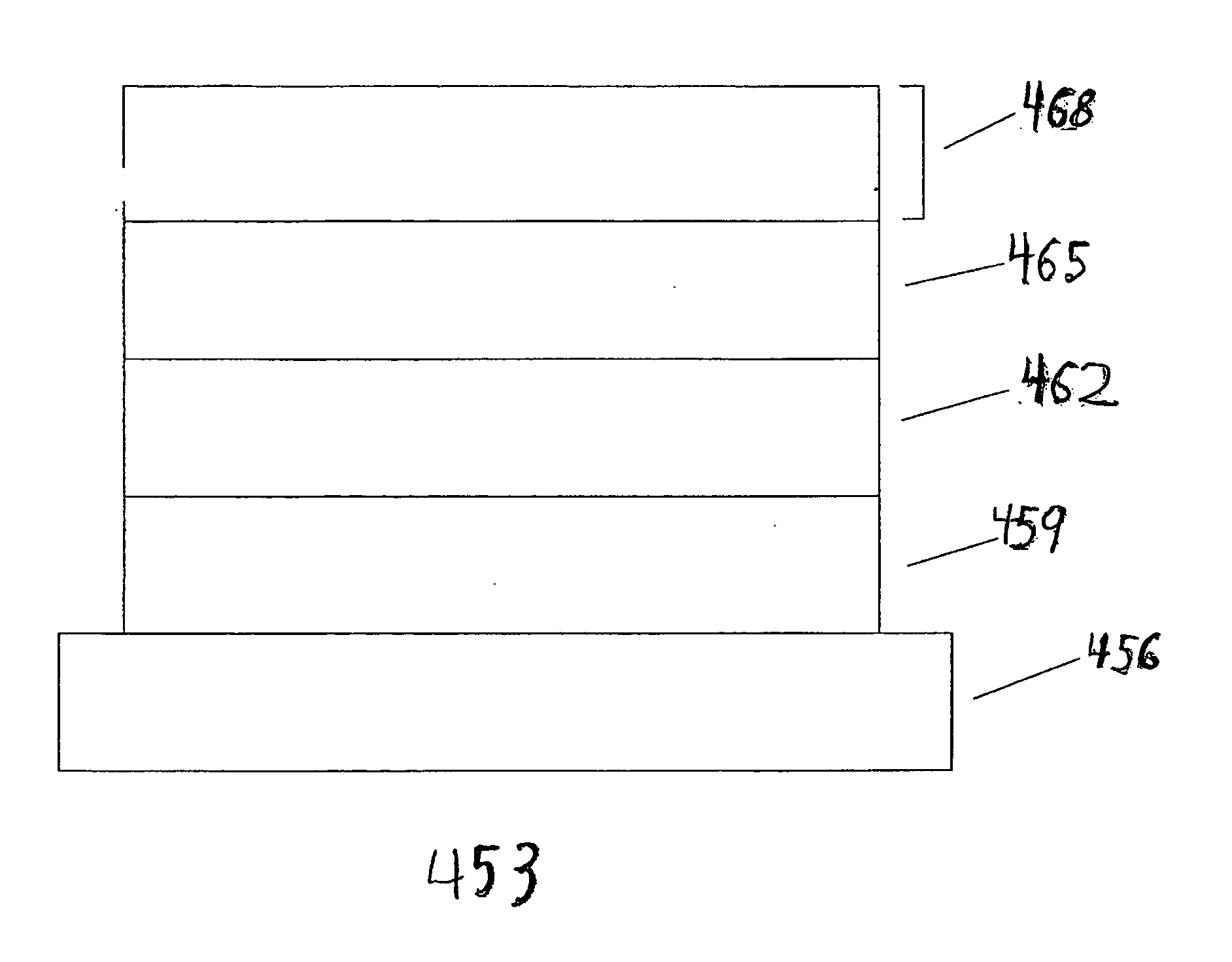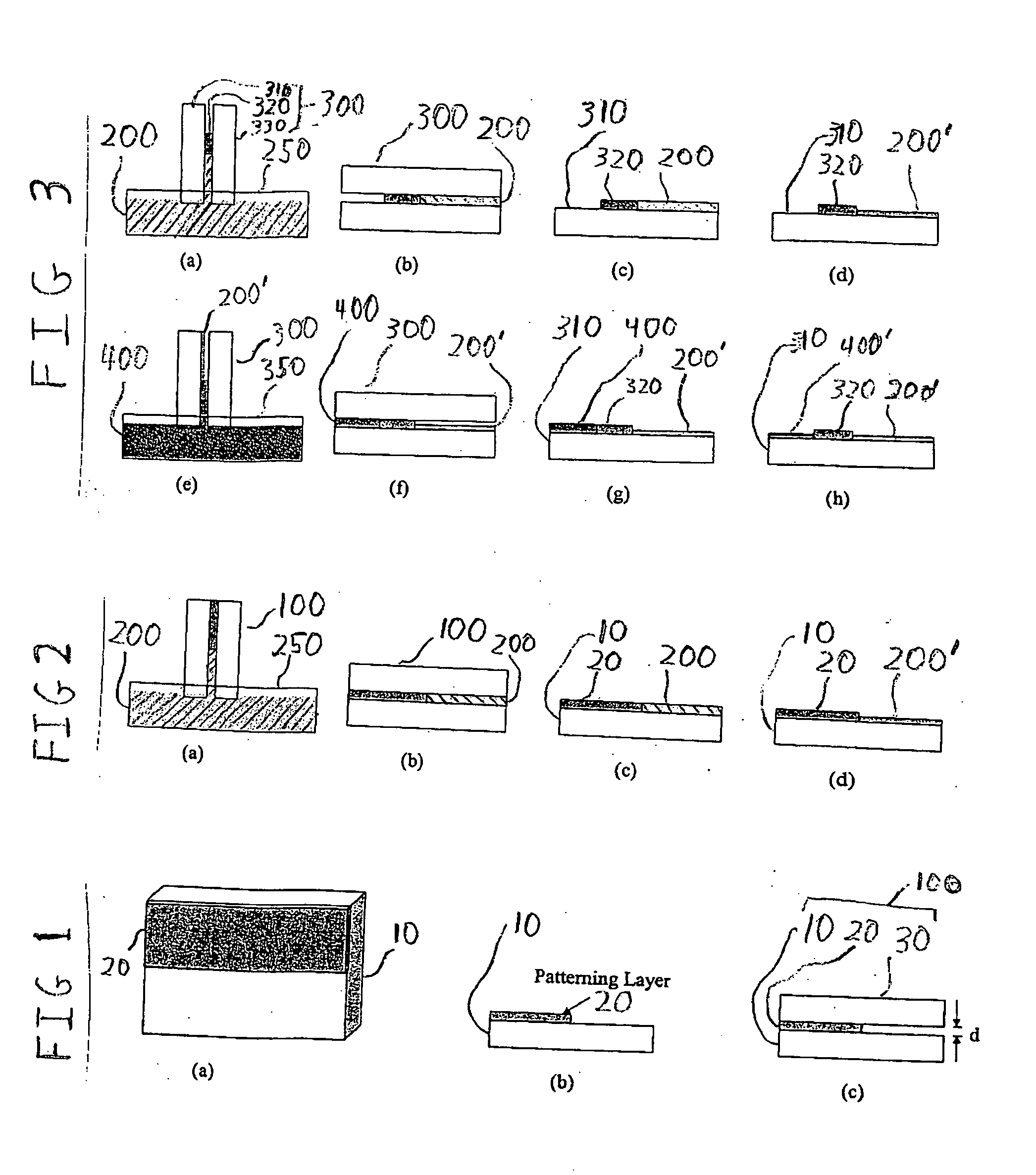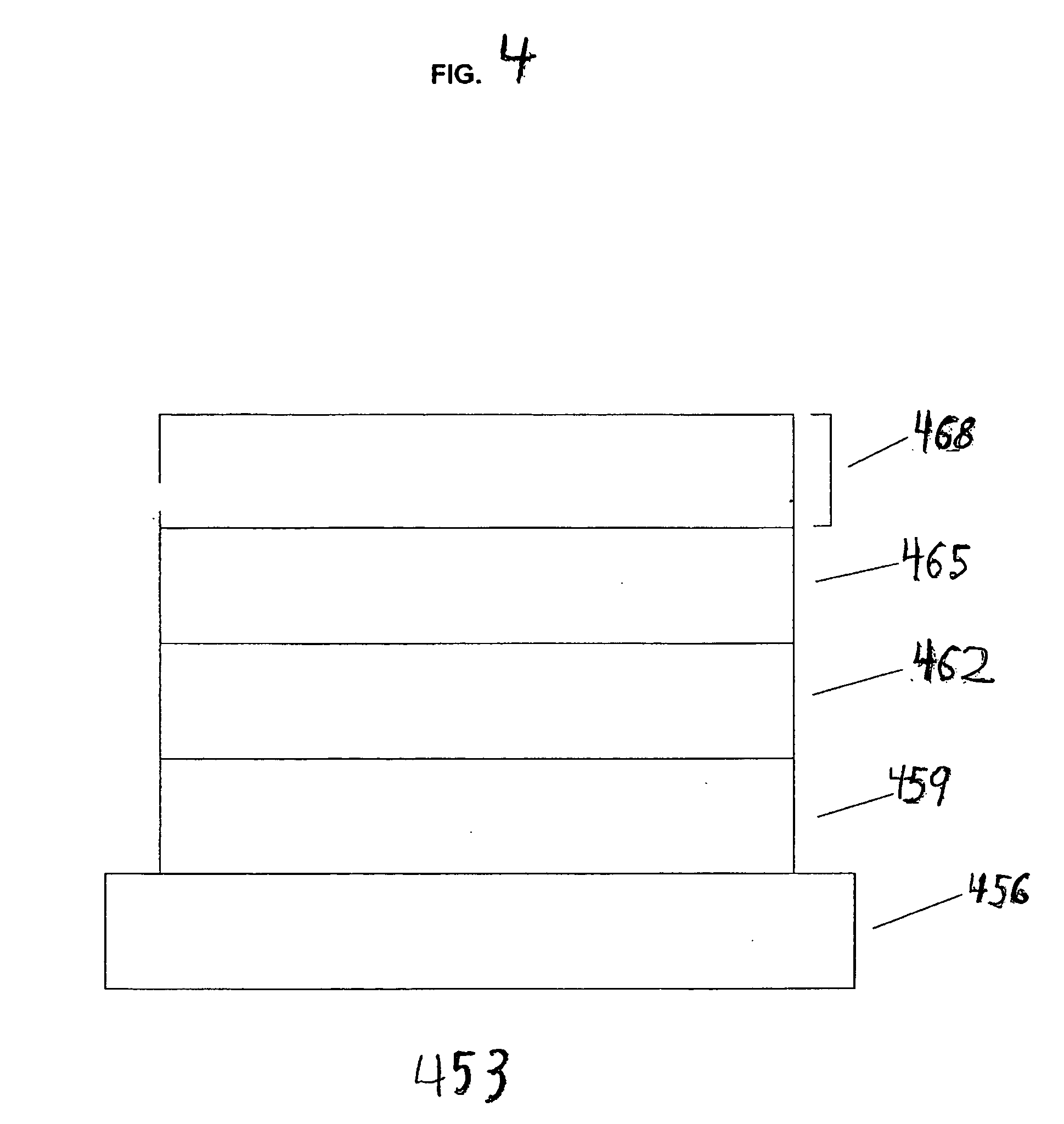Capillary coating method
- Summary
- Abstract
- Description
- Claims
- Application Information
AI Technical Summary
Benefits of technology
Problems solved by technology
Method used
Image
Examples
example application
[0044] Example Application
[0045] A specific example of an electronic device is an OLED. FIG. 4 shows an embodiment of an OLED 453 according to the present invention. The OLED 453 includes a substrate 456 that may be comprised of, for example, glass or plastic. The OLED 453 also includes a first electrode such as an anode layer 459 that is deposited on the substrate 456. The anode layer 459 may be, for example, indium tin oxide (“ITO”). The OLED 453 also includes at least one semiconductor layer, preferably, two organic layers: a conducting polymer layer 462 that is deposited on the anode layer 459, and an emissive polymer layer 465 that is deposited on the conducting polymer layer 462. The conducting polymer layer 462 assists in injecting and transporting holes. The emissive polymer layer 465 assists in injecting and transporting electrons. In one configuration of this embodiment, the emissive polymer layer 465 emits light. In another configuration, another separate layer is deposit...
PUM
 Login to View More
Login to View More Abstract
Description
Claims
Application Information
 Login to View More
Login to View More - R&D
- Intellectual Property
- Life Sciences
- Materials
- Tech Scout
- Unparalleled Data Quality
- Higher Quality Content
- 60% Fewer Hallucinations
Browse by: Latest US Patents, China's latest patents, Technical Efficacy Thesaurus, Application Domain, Technology Topic, Popular Technical Reports.
© 2025 PatSnap. All rights reserved.Legal|Privacy policy|Modern Slavery Act Transparency Statement|Sitemap|About US| Contact US: help@patsnap.com



